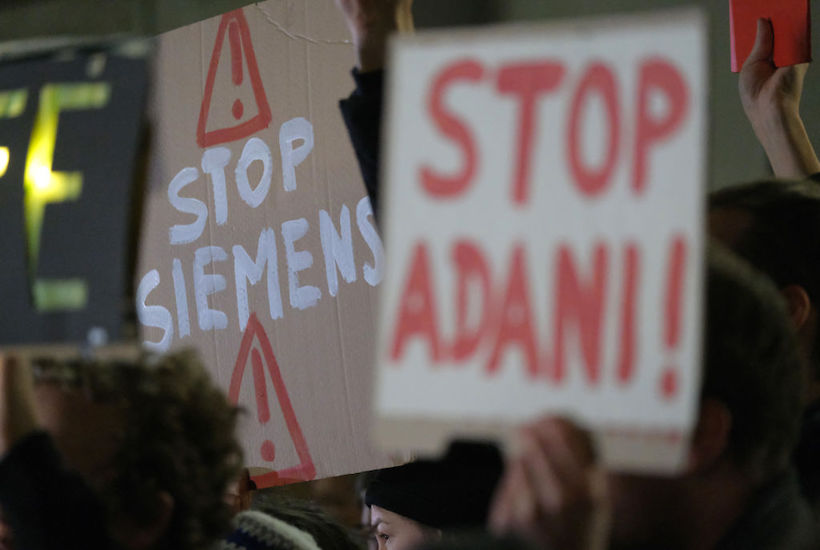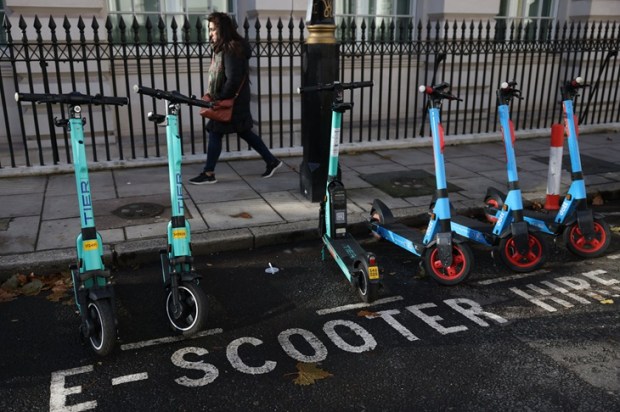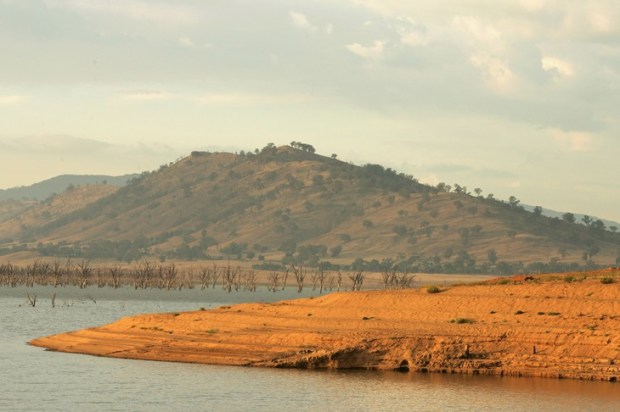Some 172 years ago Karl Marx opened the modern era of politics in proclaiming that a spectre was haunting Europe. The spectre he referred to was in the title of his “Communist Manifesto”.
Marx was talking in the context of the series of political disturbances in major European capital cities in 1848. He interpreted these as bookending the ancien regime, the evolution from which had been brutally signalled in 1789 with the French Revolution and perhaps even back in 1649 when Charles I paid the price for his “high crimes and misdemeanors”. Marx saw the events of 1848 as presaging revolution and a new era of peace and prosperity where private property would be abolished and income would be earned “by each according to his abilities” and apportioned “to each according to his needs”.
The shift to the modern state had been and continued to be evolutionary and founded on individual private property rights. No civilised government seized private property, at least that of its own citizens; nor, thanks to various constraints like Magna Carta, could governments perform modern day stealth seizures via the tax system. The embryo of what would later be called the welfare state was evident in the nineteenth century but the size of government in nearly all western countries was under 10 per cent of GDP compared with today’s 35-55 per cent.
A state practicing full-fledged socialism would take another 60 years from Marx’s proclamation of its imminence. But from the mid-nineteenth century onwards the defining feature of every country’s domestic politics was a rivalry between leftists seeking to progressively expand the state, and rightists opposing this. Such jockeying, though punctuated by rare periods, like the economic deregulations of the 1980s and 90s, gradually brought the size and powers of the modern state.
The rise of environmentalism has changed the fulcrum on which political rivalries balance.
Gradually over the past quarter of a century, the established arena for party political competition has been transformed by an environmental component. Increasing numbers of people have, in principle, set a higher priority on conserving the environment, in particular the atmosphere, above any other issue. They have done so because they have been persuaded that in the absence of urgent action there will be catastrophic consequences.
This is notwithstanding evidence, often distorted by activist scientists and media and by commercial interests, that although the weather is as variable as ever, there is no substantial or unanticipated change in the climate. Global temperatures have been increasing for over a century – well before human induced climate change could have had an effect. Temperatures may have shown a slight increase over and above trend but far less than climate models forecast. There has been no change in global precipitation. The oceans have maintained a gradual increase, perhaps slightly exceeding that seen over recent centuries. The frequency or intensity of hurricanes is unchanged. Ice coverage has been falling in the Arctic (though remaining more extensive than 80 years ago) but increasing in the Antarctic.
In other words, on a global scale there is no justification for alarm. And yet this is not the popular perception.
The Australian government was excoriated because the media and the population in general, after receiving considerable misinformation, attributed the recent bushfires to Australia doing insufficient to abate its own emissions. Mirvac chief Susan Lloyd- Hurwitz, spoke for many business leaders in saying, “This summer, the catastrophic bushfire season has demonstrated the impact of global warming.” Former prime minister Malcolm Turnbull has likened climate change deniers within the Liberal Party to “terrorists”, and argued for a “green new deal” to shift the economy off fossil fuels.
This is regardless of Australia implementing far more costly measures than most other countries in terms of reducing the use of fossil fuels and regulating land clearance. The outcome of these measures has included a doubling of the price of electricity and deindustrialisation with consequent lower living standards.
That aside, any reduction that Australia could make – even if the nation ceased to exist could have no effect on global climate. Nor is it credible to suggest, as some do, that Australia “punches above its weight” diplomatically and that if we took more extensive action other countries would follow suit.
The susceptibility of politicians to Climate Derangement Syndrome is strongest in the Greens – it largely defines the party – and Labor but it also infects the Coalition. Nicki Savva refers to “the Australian Coalition parties’ 15-year civil war against climate change”. This has brought three Liberal Party leadership changes and this week a near miss for the Nationals.
The turmoil on the conservative side is ideological and differs from the personal ambitions that brought leadership juxtapositioning in Labor’s Rudd-Gillard years. Opting to spend additional public resources on climate matters is not one creating tensions for Labor (still less for the Greens). Contemporary Labor politicians are almost all part of the new environmentalist elite. Moreover, the Labor tradition is one of progressively seeking to expand the state and the grafting of climate politics onto other cost impositions therefore sits comfortably.
But just as yesteryear’s conservative politicians adopted much of the socialist baggage that their opponents retailed, in response to the views of their natural constituents in affluent areas – not just the fabled “doctors’ wives” – they are increasingly at one with the environmentalism their opponents promote.
This creates a schism, which is more evident in Australia than most other countries. People in the inner-city seats tend to embrace environmentalist views more than those in the outer suburbs and regional areas, who tend to be more conscious of and antagonistic to measures that will see them worse off. The Liberals’ vulnerability to Green and Labor rivals in the inner suburbs is matched by Labor’s vulnerability in the traditional “battler” seats, which is amplified by a growing discord between selected party representatives drawn from the political intelligentsia and their constituents.
In the United States, we are seeing as a result of the emergence of environmental politics an overturning of the traditional allegiances. The left is winning the inner-city seats but the Republicans, especially under Trump, are eating into their traditional bailiwicks in the outer suburbs.
A similar picture is emerging in Australia, where the rejection of Tony Abbott by the electorate of Warringah in a well-financed green campaign was highly significant. Facing another green campaign, a similarly demonised Craig Kelly saw an increased majority in his outer suburban constituency.
For Scott Morrison the task will be keeping the disparate ideologies of his team together and holding inner-city seats. Labor has a different problem in so far as its representatives are almost entirely part of the new environmental elite in seeking to hold its “battler” seats.
The international dimension
The politics of carbon is also giving rise to trade frictions.
The EU, along with Australia and the West Coast of the United States has been at the epicentre of environmental politics. Spokespeople from these areas have been most vociferous in promoting climate action. But, though activists regularly proclaim the renewable power they champion to be cheaper than old fashioned fossil fuel, they know this to be untrue. Hence, there are concerns to ensure that their producers are not disadvantaged against those of other areas not facing the same cost burden.
Accordingly, a border tax is being designed that would estimate the carbon content of each import item and apply an appropriate tax rate; needless to say, this would be incredibly complex. But the seriousness of the EU concern is evidenced by Brussels requiring the post Brexit to adopt the EU carbon regulatory arrangements as a condition of a free trade treaty. While Prime Minister Boris Johnson has rejected this, his opposition is on sovereignty principles rather than on policy differences, since the UK has adopted an even more ambitious carbon reduction program than the EU.
An EU carbon border tax has been dismissed out of hand by the Trump Administration, though it would likely be supported by the Democrats. Clearly it would be bitterly opposed by China and the third world, so much so that it could unravel the world trading system’s rules.
Alan Moran is with Regulation Economics.
Got something to add? Join the discussion and comment below.
Got something to add? Join the discussion and comment below.
Get 10 issues for just $10
Subscribe to The Spectator Australia today for the next 10 magazine issues, plus full online access, for just $10.


























Comments
Don't miss out
Join the conversation with other Spectator Australia readers. Subscribe to leave a comment.
SUBSCRIBEAlready a subscriber? Log in